Bach is back, and live: UMass Bach Festival & Symposium returns in-person for first time since 2019
| Published: 04-14-2023 5:44 PM |
April in Amherst in an odd-numbered year: It must be time for the Bach Festival & Symposium at the University of Massachusetts.
The biennial event, begun in 2015, offers a wide range of J.S. Bach’s music, from solo performances to expansive pieces with a full chorus and orchestra, as well as a forum for scholars to examine the ways the famous composer’s music continues to resonate today.
And this year’s festival, which takes place April 21-23 in a number of places on campus and in town, remains an important forum for UMass music students, who make key contributions to the event while sharing stages with their professors, according to William Hite, one of the key organizers of the event.
“We never wrote a formal mission statement for the festival, but we always saw this as a great opportunity for mentoring,” said Hite, a classical and opera singer who teaches voice at the university. “When the second oboe is sitting next to a teacher at a performance, that’s a dynamic situation.”
Violinist Elizabeth Chang, a founder and principal organizer of the festival, notes that the 2023 festival has already offered an expanded number of mostly free warmup events, such as small-scale Bach performances by students and faculty at Bezanson Hall, as well as at The Drake and a few other settings in downtown Amherst.
“We’ve always seen this an a great opportunity to introduce students to Bach’s work and make them an important part of what is really a community event,” she said.
One additional free event takes place April 20 at 5:30 p.m. in Bezanson Hall, when the Five College Early Music Collegium performs selected music by Bach’s 17th-century predecessors and influences.
The festival officially opens with a free performance April 21 at 4 p.m. in Bezanson Hall when UMass faculty pianist Steven Beck performs “The Goldberg Variations,” which Bach originally composed for the harpsichord.
Article continues after...
Yesterday's Most Read Articles
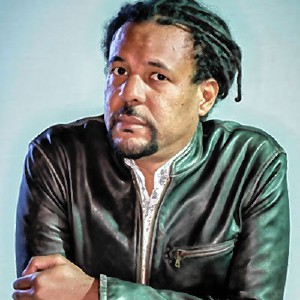 UMass graduation speaker Colson Whitehead pulls out over quashed campus protest
UMass graduation speaker Colson Whitehead pulls out over quashed campus protest
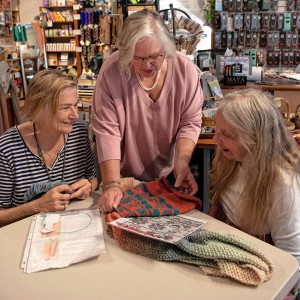 ‘Knitting treasure’ of the Valley: Northampton Wools owner spreads passion for ancient pastime
‘Knitting treasure’ of the Valley: Northampton Wools owner spreads passion for ancient pastime
 More than 130 arrested at pro-Palestinian protest at UMass
More than 130 arrested at pro-Palestinian protest at UMass
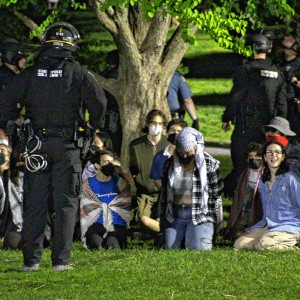 UMass student group declares no confidence in chancellor
UMass student group declares no confidence in chancellor
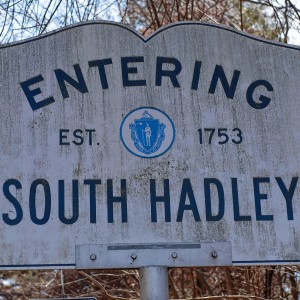 South Hadley Town Meeting OK’s budget that lays off 24 school staff; nuisance bylaw tabled
South Hadley Town Meeting OK’s budget that lays off 24 school staff; nuisance bylaw tabled
 Host of road projects to begin Friday in Amherst
Host of road projects to begin Friday in Amherst
Today the “Variations” are generally considered among Bach’s most impressive keyboard works, demonstrating his knowledge of the styles of music of his era and his performing expertise.
And at 7:30 p.m. in Room 419 of the Randolph W. Bromery Center for the Arts, a free panel discussion, “What do we talk about when we talk about ‘Bach and Timbre?’” will be hosted by a number of speakers, including UMass emeritus professor of musicology and organ Ernest May and Isabella van Elferen, the keynote speaker for the April 22 Bach Symposium.
The weekend’s musical highlight takes place April 22 at 7:30 p.m., when the UMass Bach Festival Orchestra and Chorus present one of the composer’s largest and most enduring works, “Mass in B Minor,” in Frederick C. Tillis Performance Hall.
That’s not all: On April 23 at 11:30 a.m., there’s a free public performance by UMass alumni of Bach’s “Coffee Cantata” at Amherst Coffee, while at 3:30 p.m. a special concert of Bach violin music and premieres of related works takes place in Bowker Auditorium, presented in cooperation with the UMass Asian & Asian American Arts & Culture Program.
Meanwhile, on April 22 from 9:30 a.m. to 5:15 p.m., a range of Bach scholars from the U.S. and overseas will lead discussions on the question of timbre in Bach’s music — timbre being basically defined as the tonal quality of a musical note or sound. The keynote speaker, Isabella van Elferen, hails from Kingston University in London.
The symposium, which takes place in Room 419 in the Bromery Center, will also be livestreamed for free. There is a $25 fee for in-person attendance ($5 for students) to help defray program costs; you can register for either format by visiting blogs.umass.edu/bach.
The festival began in 2015 following a chance encounter a year earlier between Chang and one of her graduate students, Amanda Stenroos, who showed up for a violin class wearing a T-shirt from her time as an undergraduate at The Conservatory of Music at Baldwin Wallace in Ohio.
Stenroos’ shirt highlighted a Bach festival her school had hosted since 1933. As Chang previously told the Gazette, she asked Stenroos about her experience and then began thinking: Could we do something like that here at UMass?
The answer was yes, and since 2015 the festival has been staged every other year, though the 2021 edition had to be staged online and scaled down because of COVID-19.
Now that the festival has returned to an in-person format, one of its highlights is the participation of UMass alumni. Hite estimates 50 former UMass music students are involved in this year’s event in some form, including as performers for “Mass in B Minor.”
One of them is Stenroos, who will be in the orchestra and is also a festival organizer. Today a music teacher and performer in the area, Stenroos said she’s been particularly excited to pull together some of the prelude performances for the festival, such as an April 1 show at The Drake featuring UMass students and faculty.
“There was some really exciting energy at the show,” she said. “It was a great place to play and get feedback and really share Bach’s music.”
In addition, two of the guest vocalists in “Mass in B Minor” are UMass grads: soprano Ava D’Agostino, who earned a master’s in 2019, and baritone Andrew Garland, who earned a bachelor’s degree in 2000.
The concert will be led by Andrew Megill, director of choral activities at the University of Illinois (Urbana-Champaign) and the conductor of the Montreal Symphony Orchestra Chorus and some other groups.
Chang, who will also perform in “Mass in B Minor,” notes that Bach is still considered a founding figure of western music. But today there’s also a sense that his canon “needs to be re-examined” from different viewpoints, including less West-centric ones, she said.
For instance, the April 23 performance at Bowker Auditorium that concludes the festival is titled “Codemakers: Vijay Iyer, Hyeyung Sol Yoon, and Texu Kim.”
The concert features some Bach music, but it is centered on performances by two musicians of Asian descent as well as compositions by two musicians of Asian descent, who have in turn been inspired by Bach’s legacy.
Chang says planning for the festival and symposium remains a big challenge — there’s a 72-page catalog that has to be prepared, for instance — but she believes UMass has established itself as a key destination for Bach experts and general admirers alike.
“Definitely,” she said.
For more information on the festival, including purchasing tickets for “Mass in B Minor” and “Codemakers,” visit blogs.umass.edu/bach.
Steve Pfarrer can be reached at spfarrer@gazettenet.com.

 Connected through art: Rocky Hill Cohousing community participates in art exchange with group from Australia
Connected through art: Rocky Hill Cohousing community participates in art exchange with group from Australia Valley Bounty: Fibers for farmers: Western Massachusetts Fibershed turns local ‘throw away’ wool into fertilizer pellets
Valley Bounty: Fibers for farmers: Western Massachusetts Fibershed turns local ‘throw away’ wool into fertilizer pellets Get Growing with Mickey Rathbun: Venture beyond your garden walls: Plant sales and noteworthy gardens to visit this season
Get Growing with Mickey Rathbun: Venture beyond your garden walls: Plant sales and noteworthy gardens to visit this season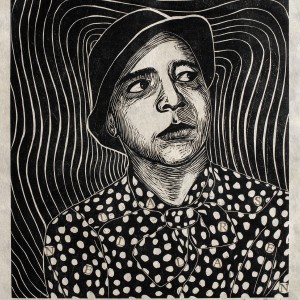 Overlooked no more: Leverett artist’s woodcut prints celebrate remarkable women of the past
Overlooked no more: Leverett artist’s woodcut prints celebrate remarkable women of the past
